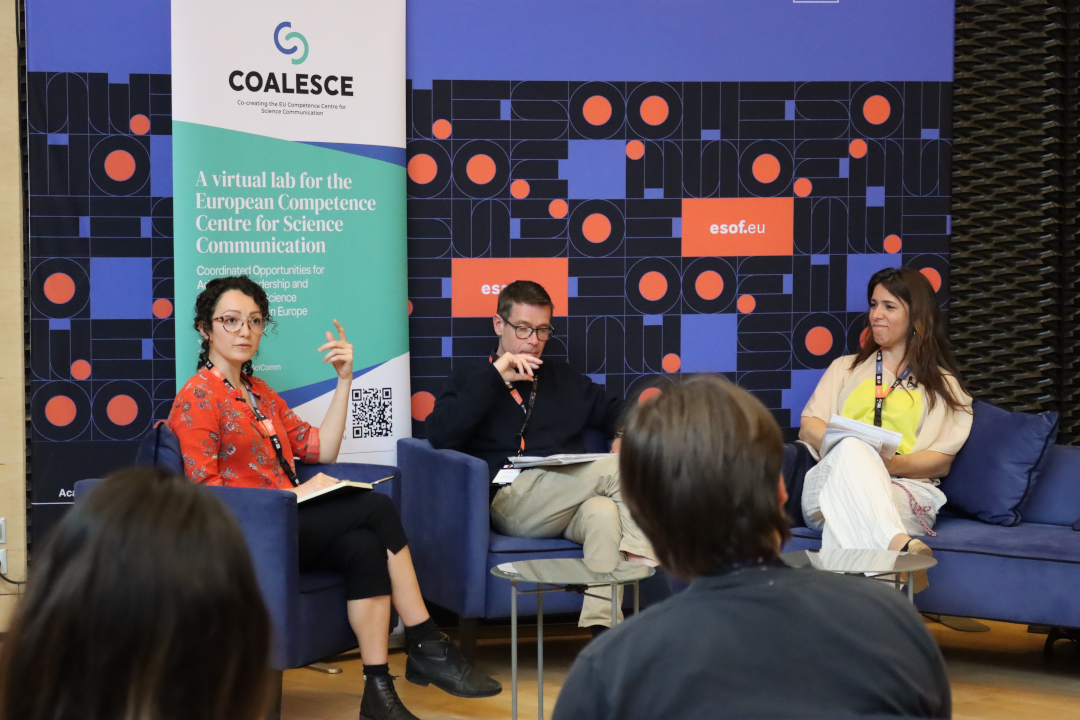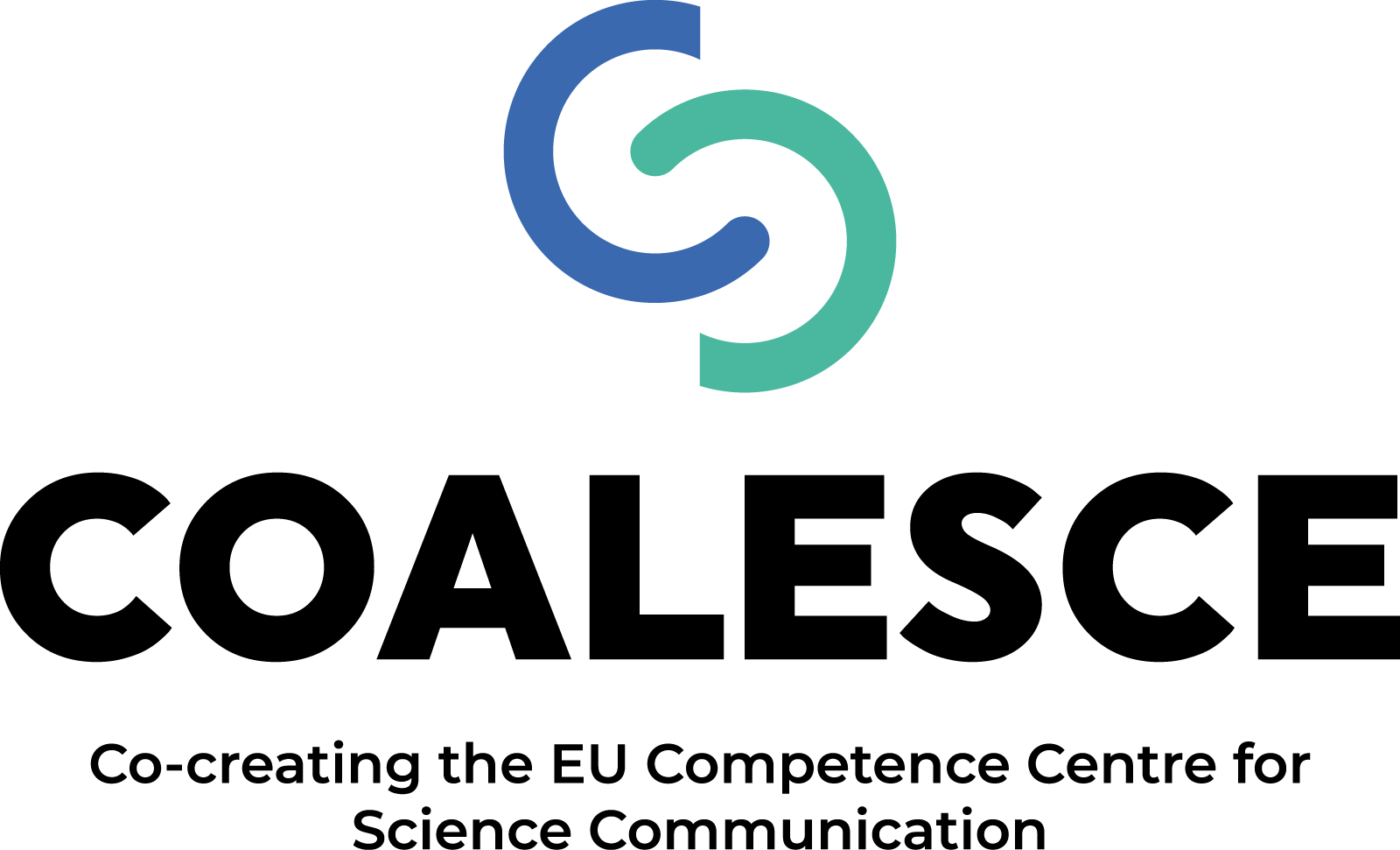Navigating urgent societal challenges: the role of science communication

COALESCE Press Release
Katowice, Poland ⸳ 12 June 2024
The COALESCE consortium, funded by the European Commission, has published a policy brief with recommendations for how science communication can more effectively address urgent societal challenges such as climate science and the rapid development of artificial intelligence. The policy brief was presented this afternoon at the 2024 EuroScience Open Forum (ESOF), taking place in Katowice, Poland, and can be found online at zenodo.org/records/11082053.
The uncertain and interrelated nature of urgent societal issues emphasises the importance and relevance of science communication. In an era of misinformation and polarisation, it is challenging to support constructive dialogue between different types of knowledge and expertise while maintaining trust. This COALESCE policy brief summarises the outcomes from a series of interviews and topic-based workshops that investigated how science communication can contribute to navigating complex, urgent societal issues.
Together with multiple-field experts, COALESCE issues a call to support the field of science communication in reaching its full potential as a mediator in science-society and science-policy interactions, as well as public discussions on science, which can strengthen the future of European democracies. In the document, the following recommendations to policymakers and science funders are addressed:
- Nurture resilience: Support science communication as a field that nurtures resilience in navigating misinformation and establishing trustworthy relationships
- Facilitate constructive exchange: Support science communication as a field in facilitating constructive exchange and strengthening public discussions about science
The policy brief addresses societal crises in four areas: 1) climate emergency, 2) water, oceans and soils, 3) health and vaccines, and 4) artificial intelligence and digital transformation. These topics were prioritised considering major global challenges, the European Commission’s priorities, the EU Missions’ support in Europe’s transformation, and the role science communication can play in multiple-stakeholder interfaces to promote co-creation and citizen engagement and increase trust in science.
The policy brief also highlights the differing needs of various actors in science communication, from science-communication professionals, journalists and academics to policymakers and citizens, including training and coordinated actions amongst them.
Note to the editors: This policy brief is the first in a series of three, capturing the first phase of the process set out to address the role of science communication in societal challenges, namely exploration and agenda setting. The next two policy briefs will address (1) the experimenting and reflecting phase and (2) the iterating and validating phase of the process.
Watch the COALESCE press conference at ESOF2024


